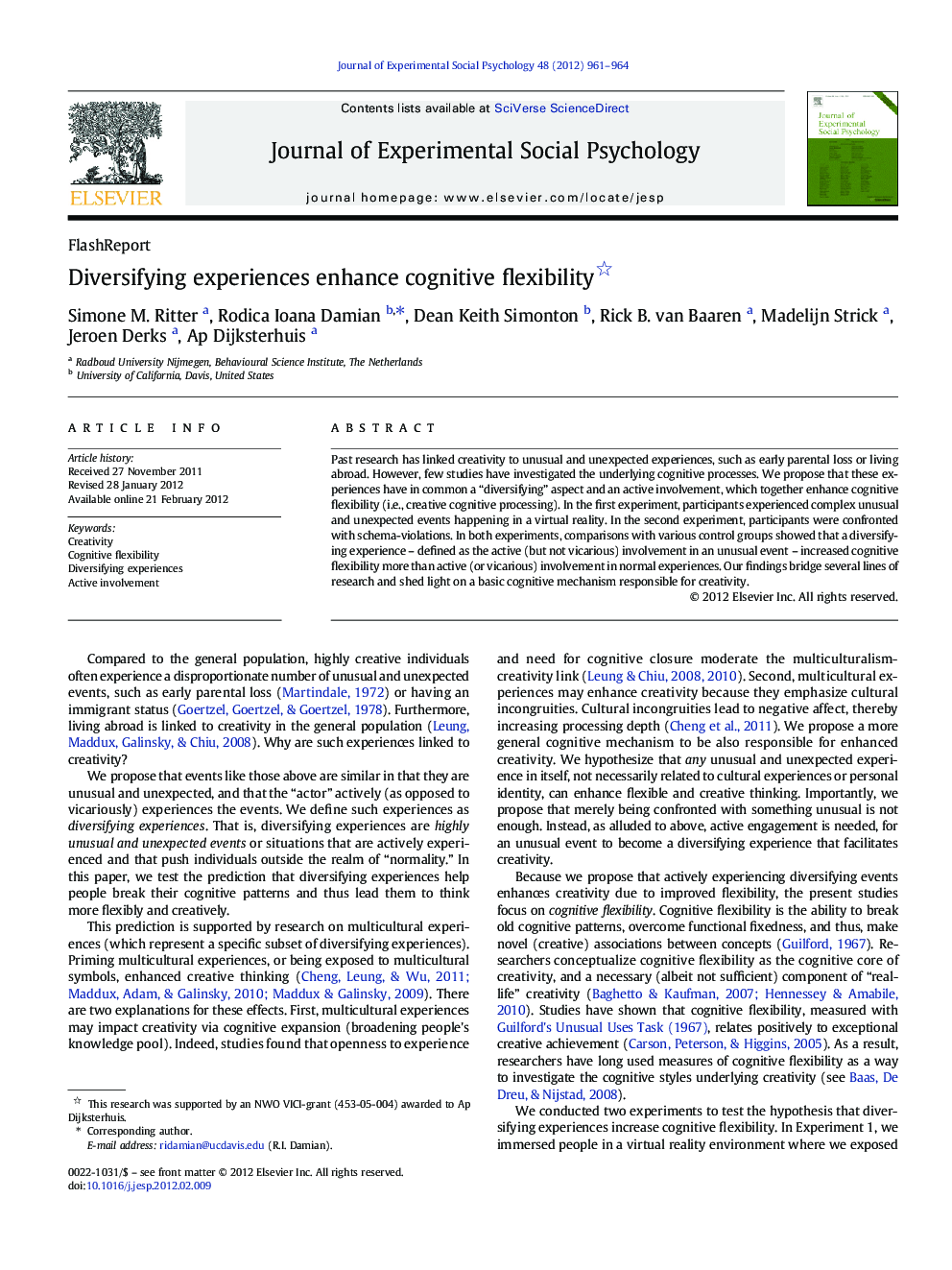| Article ID | Journal | Published Year | Pages | File Type |
|---|---|---|---|---|
| 948294 | Journal of Experimental Social Psychology | 2012 | 4 Pages |
Past research has linked creativity to unusual and unexpected experiences, such as early parental loss or living abroad. However, few studies have investigated the underlying cognitive processes. We propose that these experiences have in common a “diversifying” aspect and an active involvement, which together enhance cognitive flexibility (i.e., creative cognitive processing). In the first experiment, participants experienced complex unusual and unexpected events happening in a virtual reality. In the second experiment, participants were confronted with schema-violations. In both experiments, comparisons with various control groups showed that a diversifying experience – defined as the active (but not vicarious) involvement in an unusual event – increased cognitive flexibility more than active (or vicarious) involvement in normal experiences. Our findings bridge several lines of research and shed light on a basic cognitive mechanism responsible for creativity.
► Active (but not vicarious) unusual events enhance cognitive flexibility. ► Cognitive flexibility is the core of creative cognitive processing. ► Active experiences happened in reality or virtual reality; vicarious ones, in films. ► Diversifying experiences were complex unusual and unexpected events (Exp. 1). ► Diversifying experiences were simple cognitive schema-violations (Exp. 2).
